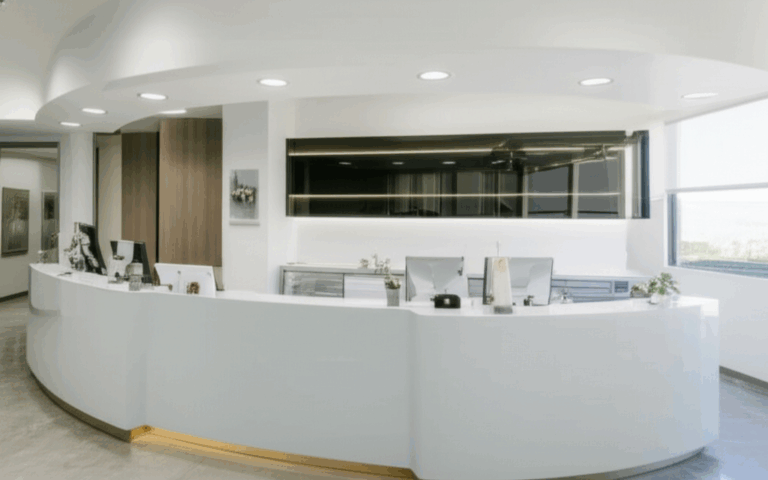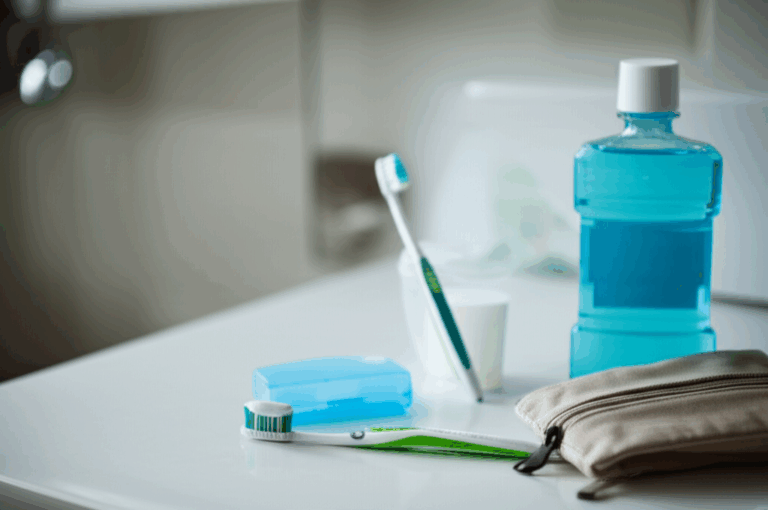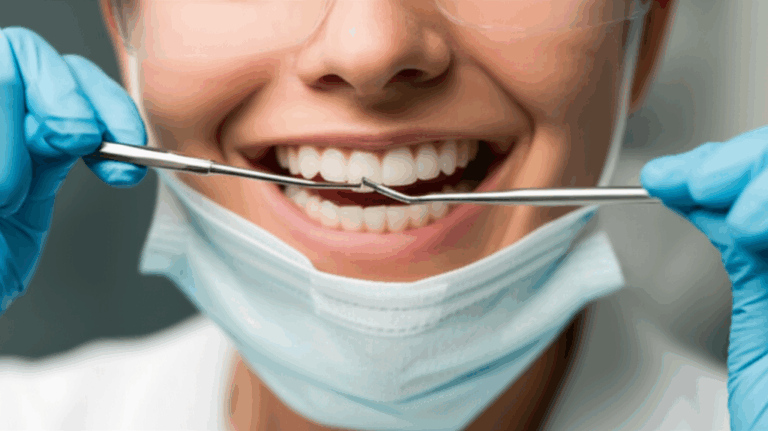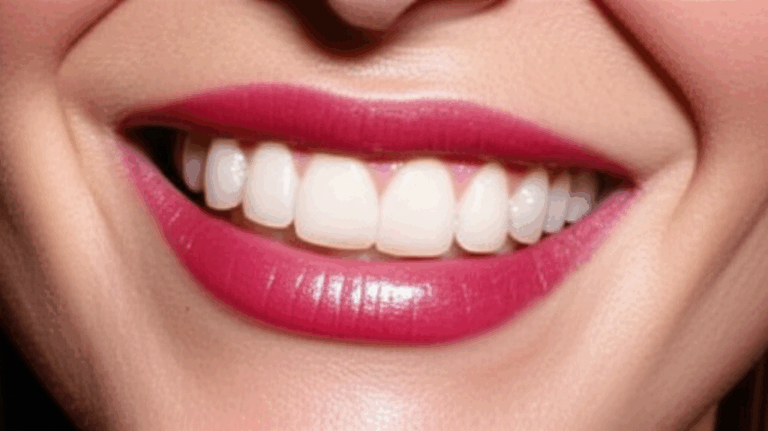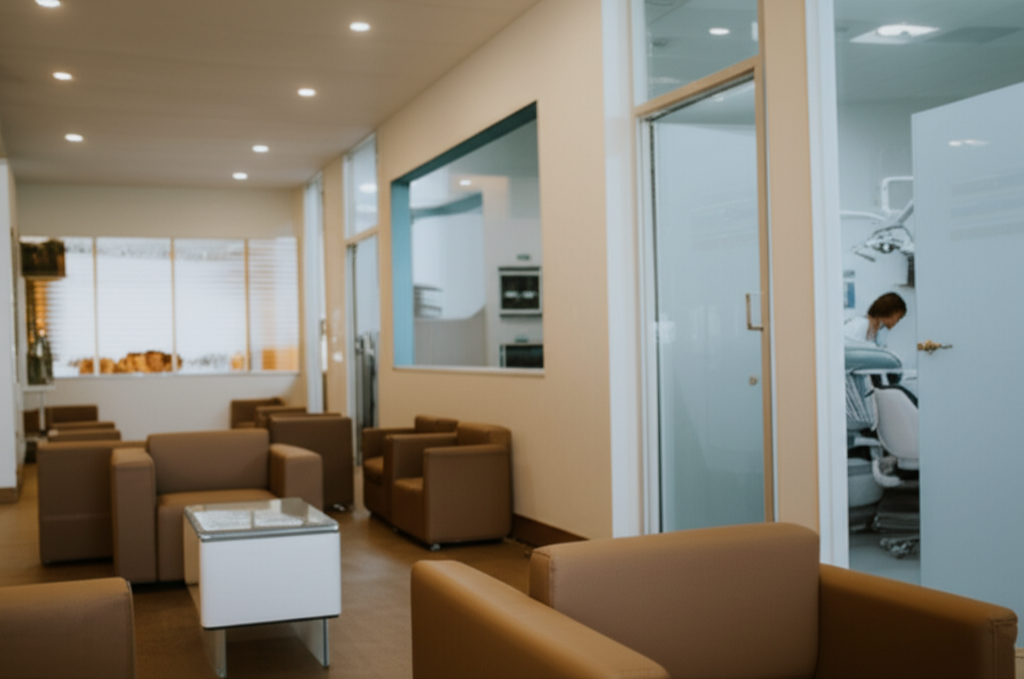
How to Work as a Dentist in New Zealand: Your Step-by-Step Guide
Table of Contents
Introduction: My Dental Journey in Aotearoa
I still remember getting off the plane in Auckland with just two suitcases, a folder full of papers, and a nervous feeling in my stomach. I had worked as a dentist for years. I had seen kids with lots of cavities and adults who hadn’t seen a dentist in ages. But all that didn’t mean much if I couldn’t get registered with the Dental Council of New Zealand. So I tackled the process one step at a time, just like a hard root canal. Careful. Step by step. No skipping steps.
In this guide, I’ll walk you through exactly how I went through New Zealand dental registration, figuring out visas, and finding a dentist job. I’ll share what I learned about DCNZ pathways, English tests, job codes, job contracts, learning about Te Tiriti o Waitangi, and even the paperwork that tripped me up. I won’t pretend it’s easy. New Zealand has strict rules because patient safety comes first. But with a plan, you can do it.
Why New Zealand? I came for work and lifestyle. I work in a system with high standards, but when I finish for the day, I can go hiking or sit near the sea. That balance keeps you going. Let’s get you started.
Step 1: Dental Registration with the Dental Council of New Zealand (DCNZ)
The Most Important First Step
DCNZ looks after dentists through the Health Practitioners Competence Assurance Act 2003. Their job is clear. Keep the public safe. Set rules for dentists. Only let good, skilled, and honest dentists get an Annual Practising Certificate. Every overseas trained dentist needs to prove two things: you meet New Zealand’s professional rules and you can talk safely in English.
A. Qualification Recognition and Assessment
This is how my paperwork check went.
- Accredited Qualifications and TTMRA
If you finished dental school in Australia or New Zealand, you can use the easier Trans-Tasman Mutual Recognition Arrangement path. Dentists already registered with the Dental Board of Australia can apply to DCNZ with less paperwork. This is the easiest path.
- Overseas Qualifications Assessment
My degree was from outside Australia and New Zealand. DCNZ checked if it was as good as a New Zealand Bachelor of Dental Surgery. You’ll send in certified copies of your BDS or DMD and your grades. DCNZ might ask for checks through a service like EPIC. They make sure your degree is real.
Depending on your background, DCNZ might want a skills test or some time working under supervision. I did a skills program where I worked in a limited dental role. It was tough but helpful. I got real feedback and learned a lot.
- English Language Proficiency
You can’t take shortcuts with English. DCNZ accepts:
- IELTS Academic with an overall score of 7.5 (at least 7.0 in each section)
- OET with a B in all four parts
I took the OET because it’s more about real dental language. I practiced writing letters and talking with patients until it felt normal. It really helped when I started seeing patients for real.
B. Registration Pathways
There are different paths based on your background.
- General Scope Registration
This is for dentists who are ready to work alone. If your training is recognized and you prove your skills, you get this license. Some dentists need to do a short skills program too.
- Provisional Registration
If DCNZ wants to check your skills more, you work under another dentist’s supervision for a while. I did this for three months, working closely with a mentor and learning a lot. We discussed cases every week and focused on diagnosis, planning, and safety.
- Specialist Scope Registration
If you have specialist training, you can apply for specialist registration. You’ll need proof of a formal specialist course, exams, or other tests. I know lots of specialists (like orthodontists, endodontists, and oral surgeons) who got through by showing all their paperwork carefully.
- Competence Programmes
Sometimes DCNZ asks for more learning in certain areas, like infection control or radiation safety. It seems like a roadblock at first but usually helps you grow.
C. Application Requirements and Documentation
I made a checklist and double-checked everything.
- Finished DCNZ application form
- Fees for the application and registration
- Certified copies of degrees and school grades
- Proof of English (IELTS/OET)
- Degree check using a DCNZ-approved service
- Certificate of Good Standing from every dental council you’ve registered with
- Police Certificate or criminal record check
- Health check showing you’re fit to work
- CV showing your work and learning
- References from senior dentists about your skills and honesty
DCNZ might ask extra questions. They do not rush this because patient safety comes first.
D. After Approval: APC and Professional Standards
After getting registered, you need an Annual Practising Certificate to work. I set reminders on my phone to renew it on time.
You have to follow the DCNZ Code of Ethics and rules. You also:
- Do enough Continuing Professional Development (CPD). I aim for 20 hours per year, mixing courses and group learning.
- Follow infection control rules in every dental office.
- Obey x-ray safety rules when using radiographs or CBCT.
- Take part in audits or quality checks.
- Know the laws that control dental work in New Zealand.
Step 2: Navigating New Zealand Visa and Immigration for Dentists
Before my registration finished, I checked my visa options. You can’t work without a legal visa. Immigration New Zealand will want proof that matches your registration.
A. Choosing the Right Visa Pathway
- Skilled Migrant Category Resident Visa
This is for dentists who want to stay long-term. You send in an Expression of Interest with points for age, degrees, work, and a job offer. Dentistry matches code 252311 Dentist. I made sure my job matched that code exactly. Immigration rules change—always check the latest points needed.
- Work Visas
I started out with a work visa, then moved to residency. Now, most use the Accredited Employer Work Visa. If you study in NZ, you could go from a Post-Study Work Visa to a dentist job. A dentist job offer is key for most visa paths.
B. Key Visa Requirements
Immigration New Zealand asks for a lot. I kept all my documents in order.
- A real job offer that matches the dentist code
- Proof of DCNZ registration (or eligibility if your employer agrees to wait)
- Health check and Police Certificate
- Proof of money if your visa needs it
- Clear work agreement with pay and hours
C. Timing, Sequencing, and Processing
Visa times can change depending on rules and how busy things are. My work visa took a few months. Some friends waited longer for residency. You can’t control the waiting, but you can make sure your paperwork is complete. I triple-checked every detail. If things got tricky, I asked a licensed immigration adviser for help.
Step 3: Finding Dentist Jobs in New Zealand
After applying to DCNZ, I focused on getting a job. New Zealand likes dentists who understand the culture, talk well with patients, and have good clinical skills.
A. The New Zealand Dental Job Market
- Public vs Private
Most dentists in cities work private. You can work as an assistant, a temp, or work toward owning a clinic. Public sector jobs are with Te Whatu Ora Community Dental Services or hospitals. They focus on child dental care, special needs, emergencies, and complicated cases. My hospital time taught me a lot.
- Urban vs Rural
There’s more need for dentists in the countryside. Rural dentist jobs often pay better and give you more to do each day. City jobs are sometimes harder to get, especially right after dental school. Specialists are needed all over.
- General and Specialist Opportunities
General dentist jobs are still good if you can do root canals, fillings, sedation, or digital dentistry. Specialist jobs are in fields like ortho, perio, oral surgery, endo, kids’, and prosthodontics.
B. Effective Job Search Strategies
I used different ways to find work.
- Online Job Boards
Trade Me Jobs and Seek NZ have lots of dental listings. I also looked at indeed.co.nz.
- Recruitment Agencies
Dental job agencies know which clinics need dentists now. They can tell you about pay and what bosses expect.
- Professional Networks
I joined the New Zealand Dental Association and went to events. LinkedIn helped me message dental bosses and managers.
- Direct Applications
Some clinics only advertise on their websites. For public jobs, check Te Whatu Ora’s listings.
C. Crafting Your Application for the NZ Market
I changed my CV for New Zealand.
- Use a clear, NZ-style CV showing dental skills, CPD, supervision, and DCNZ registration or progress
- Write a cover letter for each job. Talk about your respect for Te Tiriti o Waitangi and understanding cultural safety
- Get ready for interview questions about ethics and patient consent
- Mention scientific practice or cases you’ve presented
- Say if you can do sedation, and show you have the right training
- Bring examples of audits or quality checks you’ve done
D. Employment Contracts, Pay, and Protection
New Zealand has different job contracts. I’ve worked both commission and salary.
- Assistants often get paid a cut of what they earn. The rate depends on location and experience
- Salaries are more for public sector or big companies
- Always check your work contract closely—hours, holidays, work limits, and who pays for supplies
- Ask about help with training and insurance
- Know how ACC claims work, as New Zealand’s accident system covers injuries from accidents
Step 4: Professional and Lifestyle Considerations for Dentists in NZ
A. Earning Potential, Taxes, and Cost of Living
You can do well here, but plan your money.
- Salary
Starting out, it’s about NZD 80,000–120,000 per year. Experienced dentists get NZD 120,000–250,000. Specialists and owners can earn more. Rural jobs may pay extra.
- Taxes and Superannuation
Watch for income tax, and GST if you’re self-employed. Many jobs offer KiwiSaver for retirement savings.
- Housing and Cost of Living
Auckland and Wellington are expensive. Christchurch is cheaper. Small towns cost less but might have higher prices for groceries and transport.
- Work-Life Balance
New Zealand likes time off and outdoor life. Bosses expect good care for patients but also want you to take breaks and holidays.
B. CPD, APC, and Career Development
You need CPD to keep your Annual Practising Certificate.
- Aim for about 20 hours per year
- Join NZDA for classes, meetings, and group learning
- Consider advanced study like RACDS if you want
- If you want specialist training, check DCNZ-approved courses—Otago University is well known
- Work with dental therapists and hygienists for team care
C. Professional Indemnity Insurance and ACC
You must have professional indemnity insurance. I always keep it up to date. I also have malpractice cover. ACC covers injury from accidents, but you must still get consent and make good notes. ACC doesn’t take away your duty as a dentist.
D. Culture, Te Tiriti o Waitangi, and Patient Care
Culture matters. The Treaty of Waitangi means dentists must respect the rights of Māori patients.
- Say Māori names and places correctly
- Make care plans that involve families
- Ask about things that affect how people see the dentist
- Use translators if needed
- Learn about Māori health and safety
- Help out at community dental clinics if you can
E. Compliance: Radiation, Infection Control, and Materials
Follow rules to keep your job and patients safe.
- Infection Prevention
Follow the local guide for cleaning and sterilizing tools. I updated our records and re-trained my team.
- Radiation Safety
Keep up with x-ray safety. Check equipment, use safety gear, and document all scans.
- Dental Materials and Medicines
Know which materials are okay to use, and keep records of all your supplies. Keep safety sheets for chemicals. Sedation needs special training and checked equipment.
F. Digital Dentistry, Labs, and Clinical Partners
Clinics use different amounts of new tech. I joined a place with scanning, CAD/CAM, and 3D printing. It made my work with crowns and restorations smoother.
You’ll pick lab partners for crowns, bridges, implants, and more. Some are local; some are overseas. If you want more digital workflows, you can work with a digital dental lab for quick scanning and printing, or a crown and bridge lab for regular work. For implants, find a lab that really understands how to fit them right. Pick labs that explain their materials and offer good advice. Get clear agreements about remakes. Patients notice when labs and dentists work well together.
Useful Resources and Next Steps
At the start, I bookmarked the main websites and checked often.
- Dental Council of New Zealand for registration, fees, CPD, ethics, and APC steps
- Immigration New Zealand for visa info and updates
- New Zealand Qualifications Authority if needed
- New Zealand Dental Association for membership, courses, help, and jobs
- Te Whatu Ora for public sector dental jobs
- Health Workforce New Zealand for job outlook info
Quick Checklist for Overseas Trained Dentists
- Check if DCNZ accepts your dental degree
- Book your English test and score above the minimum
- Get certified copies of your degree and marks
- Ask old dental regulators for Good Standing certificates
- Get a new Police Certificate that works for both DCNZ and Immigration
- Prepare a health check if needed
- Make a NZ-style CV and cover letter
- Start talking to clinics or recruiters early—job offers help your visa case
- Get professional indemnity insurance that fits NZ rules
- Plan CPD and APC renewal from day one
Common Mistakes I Learned to Avoid
- Job descriptions not matching the official Dentist code—check every task
- Letting your English test expire mid-process
- Sending in non-certified copies—DCNZ won’t accept them
- Delays getting Police Checks from more than one country
- Not writing down what you did during supervision or training programs
- Waiting too late to renew your APC—set a reminder
Frequently Asked Questions I Hear From OTDs
- Is the Skilled Migrant Category the best path?
Often yes for residency. Accredited Employer Work Visa is faster if a clinic wants you right away.
- Will DCNZ accept my BDS or DMD as equal?
They check each case. Many BDS and DMDs are accepted, sometimes with extra steps.
- Do I need NZQA?
Not always. Only if DCNZ asks.
- Can I do locum work?
Yes, once you’re registered and have your APC. Good for learning about different offices.
- What about dental hygienists and techs?
They have their own rules and registration. You’ll work with them as a team.
- Is CPD needed every year?
Yes. Keep 20 hours for general dentists, more for specialists.
- How does ACC work?
ACC covers accidents but you still need good notes and consent from patients.
A Note on Ethics and Professionalism
Dentistry in New Zealand runs on trust. Patients expect you to follow the rules. You need Good Standing and Police Certificates. You must do safe infection control, follow x-ray rules, and keep patient info private. Keep learning. That’s what being a dentist here is all about.
Conclusion: Your Future in New Zealand Dentistry
If you’re reading this, you’re serious about working as a dentist in New Zealand. I went through the same journey. I filled out all the forms. I took the English test. I waited for emails, nervous. Then I treated my first patient in New Zealand and finally felt at home.
You can do this. Start your DCNZ registration now. Plan your visa next. Get your CV ready and learn about the culture. Keep up your CPD, renew your APC, and stay insured. Get into digital dentistry and team up with reliable dental labs. If you put in the work, you’ll learn, earn, and live in a country where life outside work matters.
Start your application today. There are patients in New Zealand waiting for you.

